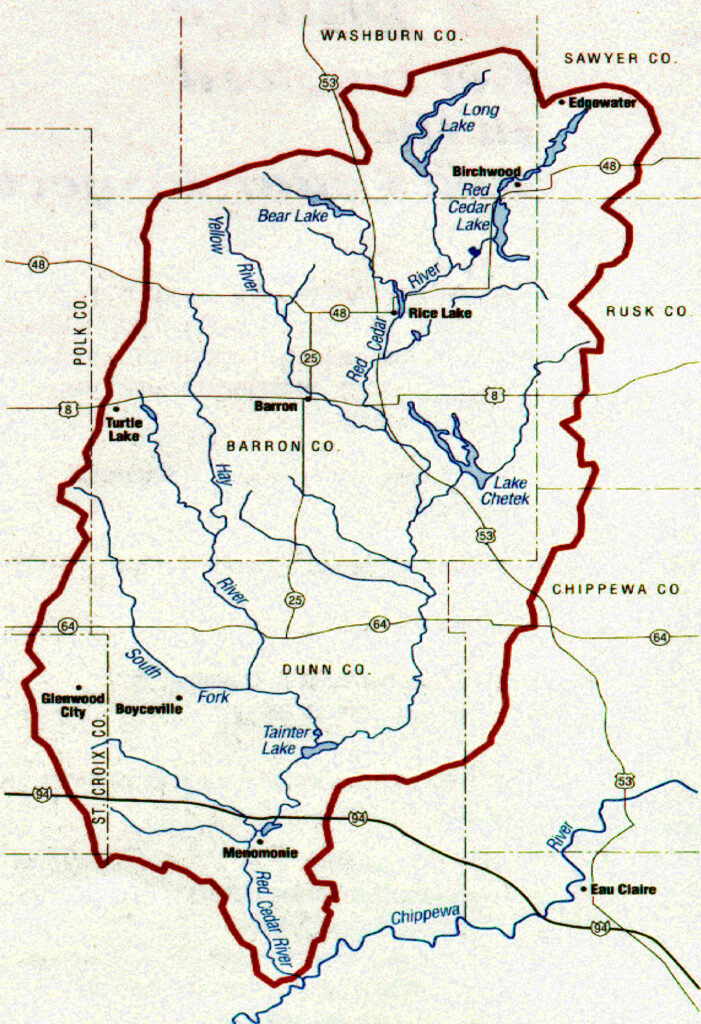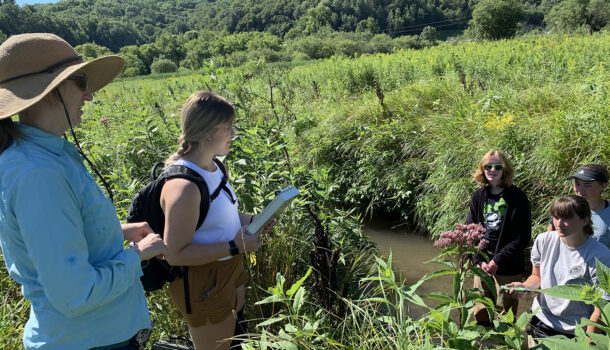ABOVE PHOTO: UW-Stout Assistant Professor Nicole Hayes, left, guides students as they conduct tests in summer 2022 on Gilbert Creek west of Menomonie.
The 11th annual Red Cedar Watershed Conference will feature three keynote speakers and several breakout sessions, including one with two University of Wisconsin-Stout professors.

The conference brings together professionals, educators, activists and residents from around the region to discuss ways to improve water quality within the Red Cedar River watershed, which includes about 40,000 acres of open water and 4,900 miles of waterways in northwestern and west-central Wisconsin. Speakers examine issues related to point- and nonpoint-source pollution.
The event will be held from 8:30 a.m. to 4 p.m. on Thursday, March 9, on campus at the Memorial Student Center. Learn more, including how to register, at the website. The event is being planned by the Red Cedar Watershed Conference Committee with support from UW-Stout’s Continuing Education and Conferences office.
Keynote presentations include:
- 8:45 a.m., Jim Boulter, UW-Eau Claire professor of chemistry and environmental studies, “Wisconsin’s Changing Climate and Agriculture’s Role”
- 12:05 p.m., Rick Clark, owner of Clark Land and Cattle Farm and Farm Green Consulting, “Farm Green for the Future”
- 2:45 p.m., Chad Pregracke, founder and president of Living Lands and Waters, “From the Bottom Up.”
Also presenting will be UW-Stout biology Assistant Professor Nicole Hayes and social science Professor Tina Lee, “It Takes All Kinds: Ongoing Multidisciplinary Water Research and Action at UW-Stout.”
Hayes and Lee will review nutrient trends in the watershed with a focus on the Red Cedar River, Hay River, and lakes Tainter and Menomin and discuss the eutrophication status of both lakes. Eutrophication occurs when high levels of phosphorus and nitrogen cause blue-green algae blooms and dissolve oxygen levels.
They also will share updates about ongoing and future watershed-related research activities at UW-Stout such as the LAKES Research Experience for Undergraduates program and monitoring supported by the Freshwater Collaborative of Wisconsin; establishment of the Center for Rural Opportunities and Prosperity — CROPS — and Red Cedar Learning Hub; new data about the health of the watershed; ongoing efforts at protecting and improving the watershed; and new initiatives that aim to support the local economy and farmers. CLICK HERE FOR MORE.


